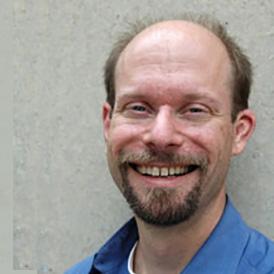
Lab Website:
Email:
Office:
Phone:
Administrative Assistant:
Courses:
Research-at-a-glance:
Affiliations:
Biography:
Dr. Yaffe is the David H. Koch Professor of Biology and Biological Engineering at MIT and Attending Surgeon at the Beth Israel Deaconess Medical Center, Harvard Medical School. He completed a residency in General Surgery, a Fellowship in Surgical Critical Care, Burns and Trauma at Harvard Medical School, and post-doctoral training in Signal Transduction with Lew Cantley in Cell Biology at Harvard. He received his B.S. degree in Materials Science and Engineering at Cornell University, and his M.D. in 1989 and Ph.D. degree in 1987 from Case Western Reserve University in Biophysical Chemistry.
Research:
The goal of the Yaffe group’s research is to understand how signaling pathways are integrated at the molecular and systems level to control cellular responses. The Yaffe lab is particularly interested in: (1) signaling pathways and networks that control cell cycle progression and DNA damage responses in cancer and cancer therapy; and (2) cross-talk between inflammation, cytokine signaling and cancer. Much of our work focuses on how modular protein domains and kinases work together to build molecular signaling circuits. The work is multi-disciplinary and encompasses biochemistry, biophysics, structural and cell biology, engineering, and computation/bioinformatics-based methods."
When cells encounter stress or injury such as DNA damage or infection, they activate complex signaling networks that regulate their ability to recover, repair the damage, and return to a homeostatic equilibrium. These networks must integrate a wide variety of signals from inside and outside the cell, transduced through protein kinase and lipid signaling pathways, to ultimately control cell cycle arrest or progression, coordinately regulate specific patterns of gene expression and/or initiate programmed cell death. Mutations in, or dysfunction of, protein kinase signaling pathways that normally respond to DNA damage, for example, play critical roles in tumor development and progression, while intentional targeting of these pathways can enhance the ability of commonly used DNA damaging chemotherapy and radiation to cure cancer. Similarly, pathogenic infection, mis-regulation of cytokine feedback loops, and inappropriate activation of the blood clotting cascade, causes dysregulation of cell signaling pathways in neutrophils, macrophages and lymphocytes, causing tissue damage in auto-inflammatory diseases and multiple organ failure in states of overwhelming infection and sepsis.
How are the signals from individual pathways integrated at the molecular level to control the phenotypic response of cells to infection, stress and DNA damage? What are the key pathways and molecules that are involved in these cellular events, and how are their activities and their interactions regulated by protein phosphorylation? How can these pathways be therapeutically manipulated using combination chemotherapies to re-wire tumor cells for optimal killing, or to limit cytokine-mediated inflammation and death? The Yaffe lab uses a broad range of technologies to decode how these cell signaling pathways are “wired” into functional networks through proteomic methods, high- and medium-throughput signaling assays, RNAi-based screens using high-content imaging, and computational/bioinformatics approaches, together with more traditional techniques from cell biology, physical biochemistry, structural biology and mouse genetics. The Yaffe lab also has a long history of inventing new chemical, biochemical, and computational methods to study signaling, including peptide library-based screens and motif-based bioinformatics tools for building signaling networks in silico.


